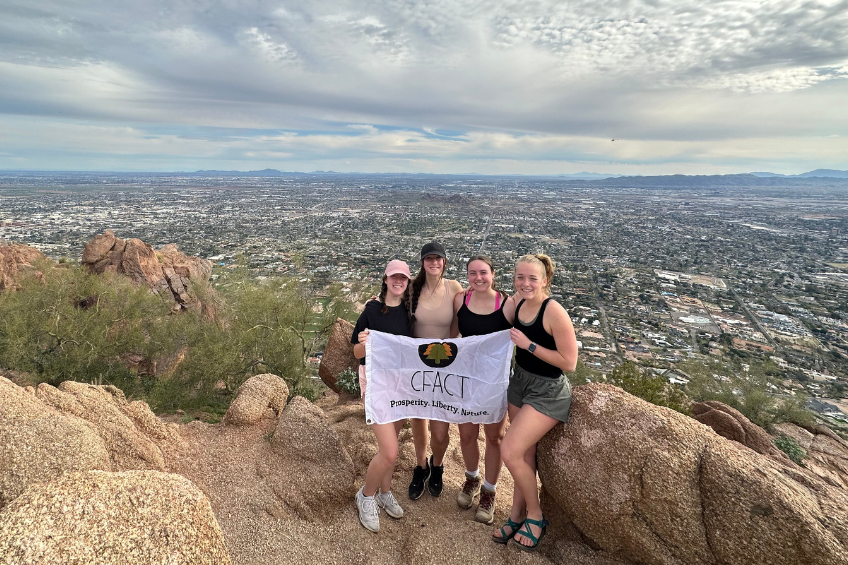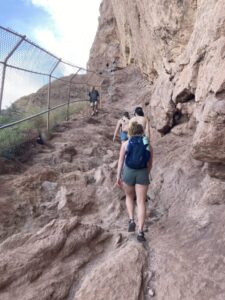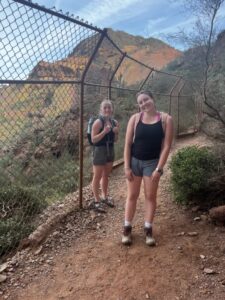The CFACT Collegians group at Grand Canyon University in Phoenix, AZ organized a hike of Camelback Mountain to encourage an appreciation of stewardship of nature among club members. While it is important to spread the facts about issues like climate change, energy, and property rights, it is equally as important to help students appreciate the environment they are working to protect through free market principles.
“We hiked camelback mountain, a tough hike about 20 minutes from campus,” event organizer Farrell Sessler said. “One of the quotes from the girls was, ‘Being in nature and on this hike is like a breath of fresh air. There is nothing better than getting away from campus and being in God’s creation.’”
According to the park website, the area is “part of the Phoenix Mountains Preserve, Camelback gets its name from its two rock formations that resemble the head and back of a kneeling camel. It became a city park in 1968, and sits right next to Phoenix’s Arcadia neighborhood — a great dining spot — and the town of Paradise Valley.”
Among the things students can experience on the hike are various flora and fauna, including “native species such as the desert tortoise, Chuckwalla lizard, cottontail rabbits, and rattlesnakes (hike with caution). Plant species include the saguaro, cholla and prickly pear cacti, as well as native trees such as mesquite and palo verde,” according to the park website again.
Look for the CFACT coalition at Grand Canyon University to organize even more impactful events regarding stewardship, climate change, and more in the weeks to come.
CFACT Collegians is the only national group solely dedicated to educating college students about the facts behind climate change, energy, and more.
This article originally appeared on the CFACT Collegians website.


